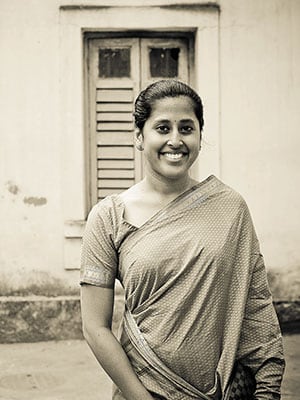
Rwitwika Bhattachary: Helping Politicians Bring Development
Through her Swaniti initiative, Rwitwika Bhattacharya, 27, is helping you help your leaders govern better and stronger
CATEGORY: LAW, POLICY & POLITICS
It has never been easy to be young and also be able to exhibit enterprise in the space of politics and public policy in India. By the time you get your head around the complex web of structures and conventions that govern representative democracy, you hardly have even a remote chance of being called young. At 27, Rwitwika Bhattacharya, a graduate from Harvard’s John F Kennedy School of Government, is an exception to this general rule.
Bhattacharya is the founder of Swaniti Initiative, an NGO which consults MPs and MLAs on how to bring about development in their respective constituencies. An onerous task, but ask her and she will tell you that the idea of working with public representatives attracted her even when she was a child. It helped that Bhattacharya’s father is a politician himself and that gave her exposure at an early age. “I was just 12 when, while talking to Manish Tewari (currently the Union minister for information and broadcasting), I said I want to work with politicians. He smiled and said, ‘First you finish school and then we will see’,” she says.
However, she spent most of her formative years studying in the US. In fact, Bhattacharya even worked for an American senator, Katherine Harris, in her constituency while she was in still in school. But each time she came back home and narrated stories of development work in the constituencies in the US, people in India wondered why such things did not happen in India. “While in the US, I realised the amount of help a senator gets for the work in his or her constituency (unlike in India),” Bhattacharya points out.
She put the concept of Swaniti through a pilot test while at the Kennedy School. “It was the perfect breeding ground in terms of talent,” she says. The first few attempts gave her some insight into how to make it work. And Bhattacharya learned well, as the growth of Swaniti indicates.
Since its launch in 2009, Swaniti has worked with 35 MPs and 37 MLAs. Some of the prominent names across party lines include former railways minister Dinesh Trivedi of Trinamool Congress, Jay Panda of BJD and Yashwant Sinha of BJP.
“What makes Rwitwika stand out is her ability to have built an equally motivated and committed team in Swaniti. That to me suggests that it would be a sustainable enterprise,” says Jagdish Chhokar of the Association of Democratic Rights, who has observed Swaniti’s work closely.
The flagship aspect for Swaniti is its fellowship programme for which young enthusiastic and committed professionals are chosen after a stringent process and then attached to an MP or an MLA to address a developmental need in their constituency.
For instance, in Trivedi’s constituency of Barrackpore in West Bengal, employees of a jute mill were reportedly suffering from respiratory illnesses. But, as is often the case, the local administration was saddled with other problems to bother to investigate. That’s where Swaniti spared a volunteer from its ranks to stay in the constituency, figure out a solution and then help with its implementation. In this case, it was 27-year-old MBA graduate Dinesh Chand. “Before Swaniti happened, I did not even know that many politicians have teams of professionals working for them. It was such an eye opener,” Chand says.
MR Madhavan of PRS Legislative Research echoes the point. “There are hardly any opportunities for young professionals to join in otherwise. Swaniti is providing a valuable chance for the young to get involved,” he says.
The other big component of the Swaniti Initiative is the Jigyasa lab. It was started in end-2013 and has become a growing resource for data, which can help analyse various aspects of India’s policy making and development. What makes it distinctive is the manner in which information across different variables, such as agricultural growth, agricultural intensity and the name of ruling party, is mapped on a single chart. As you move the slider, you can see how agricultural performance of the state varies over time and with the change in political parties.
Bhattacharya, though, is cautious about funding: She wants to guard against being paid by politicians. Barring travel and lodging of a fellow during his/her stay at the constituency—which is paid for by a public representative—Swaniti is funded by various foundations like the Forbes Marshall Foundation, Gautam Thapar’s Avantha Group, IDRC (International Development Research Commission) and British High Commission. “Financially, we are well off because of strong donors,” she says.

The intensity of the involvement Bhattacharya has planned for Swaniti is best put by its fellow Chand: “She said I want Swaniti to be the Google of [the] development space.” The search for good development practices can, perhaps, end here then.
Our 30 Under 30 list and methodology
(This story appears in the 30 November, -0001 issue of Forbes India. To visit our Archives, click here.)





